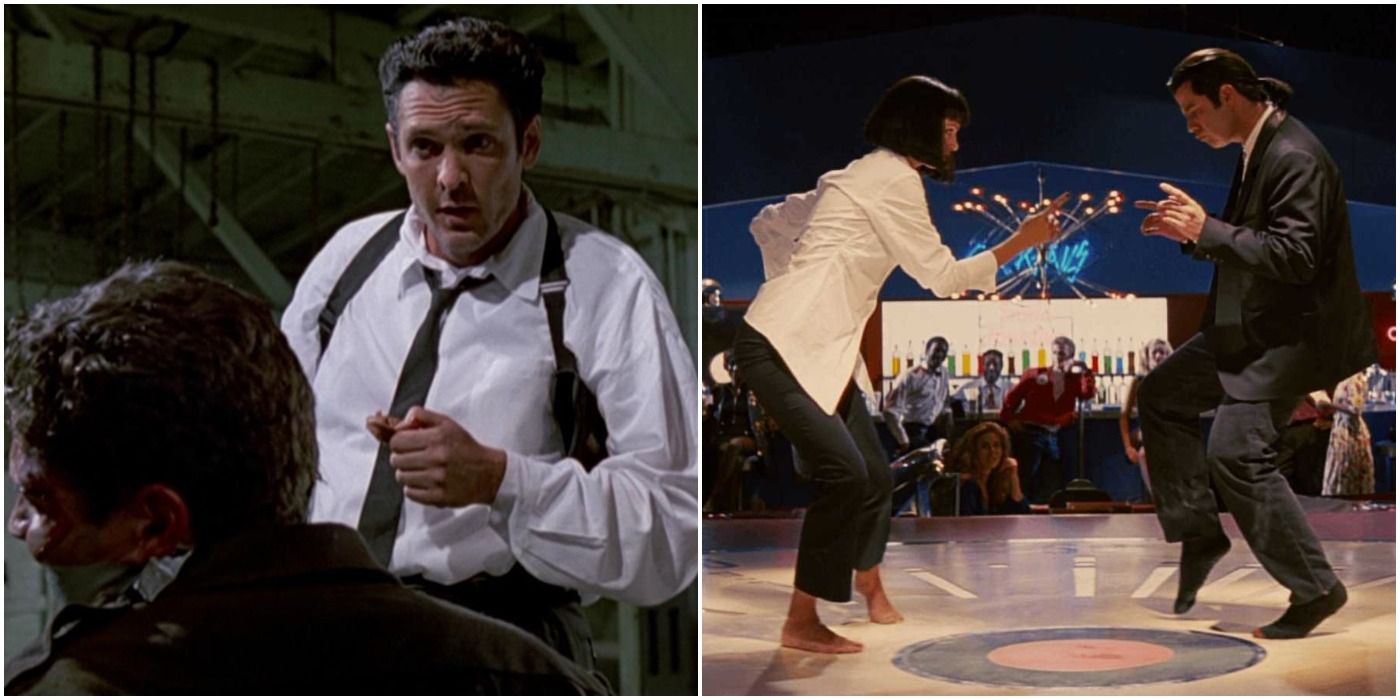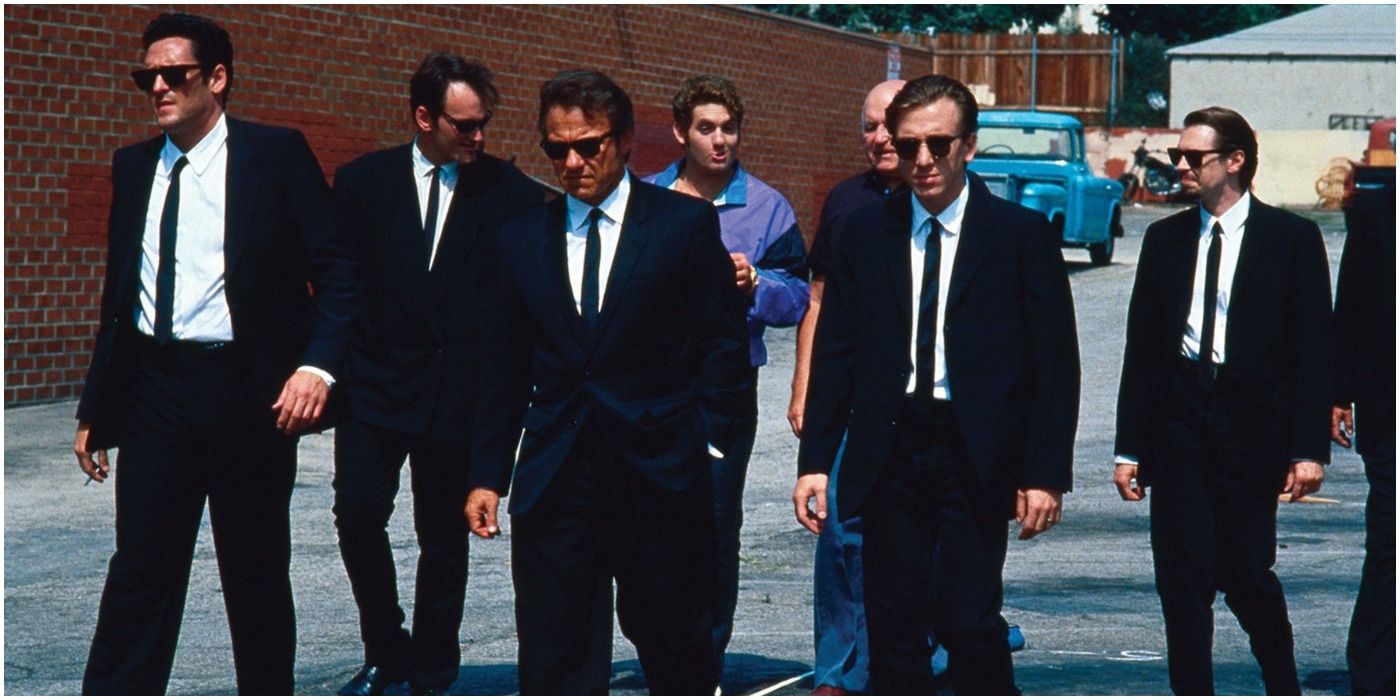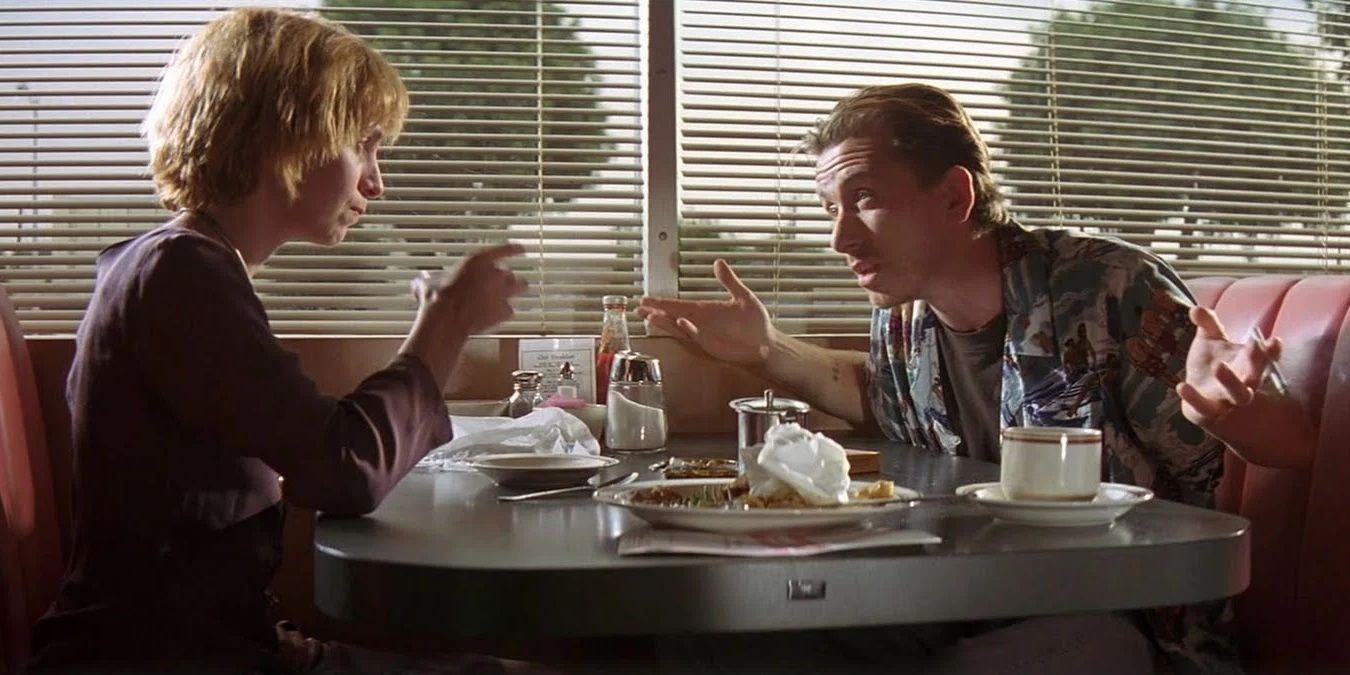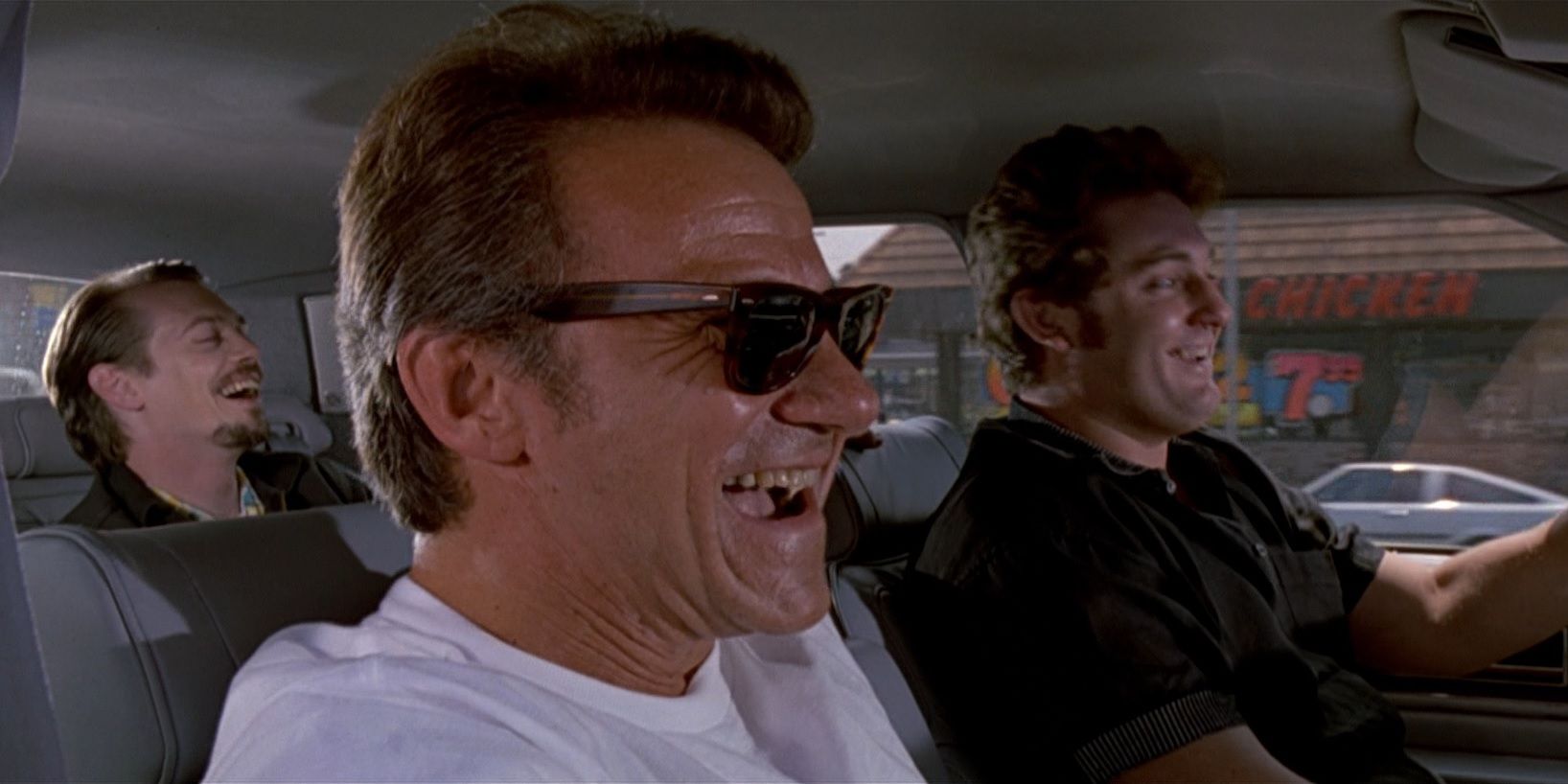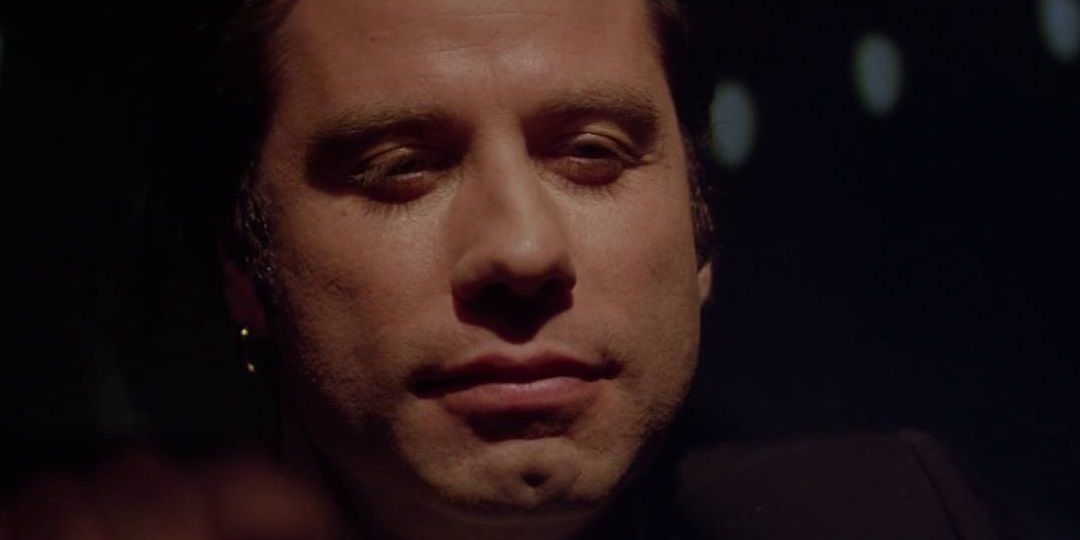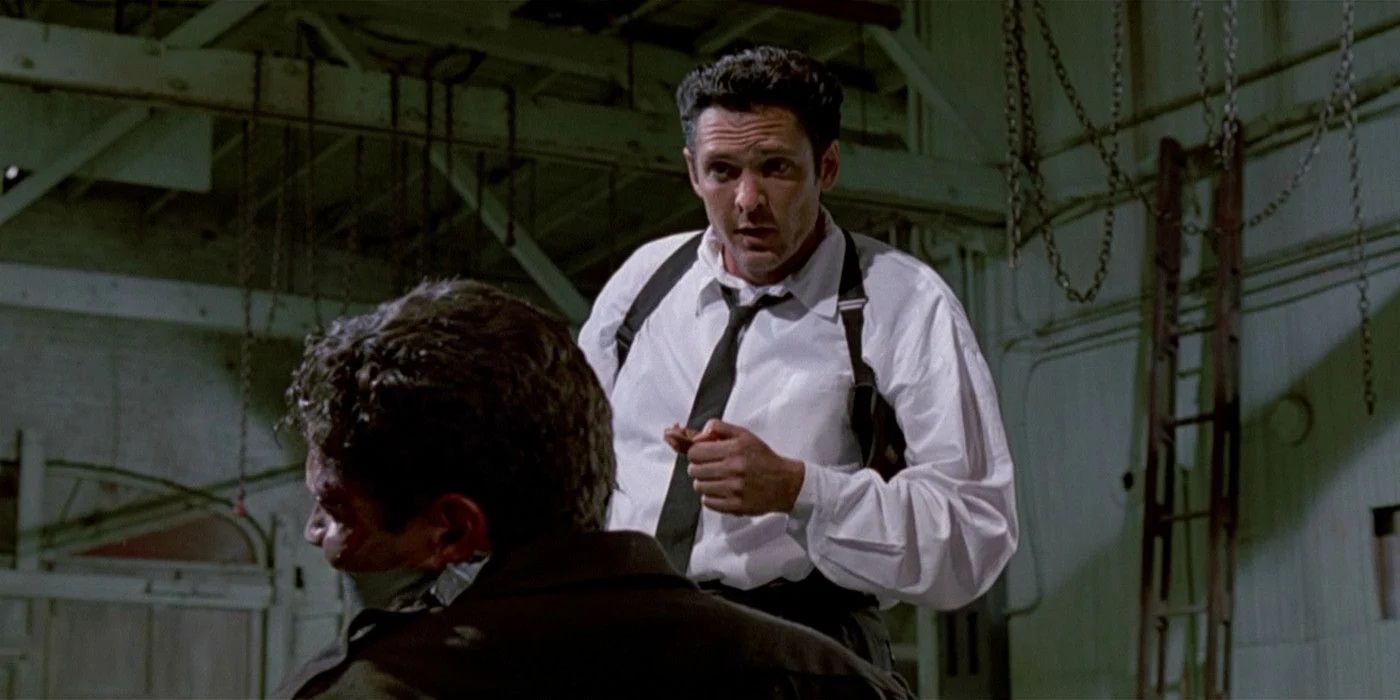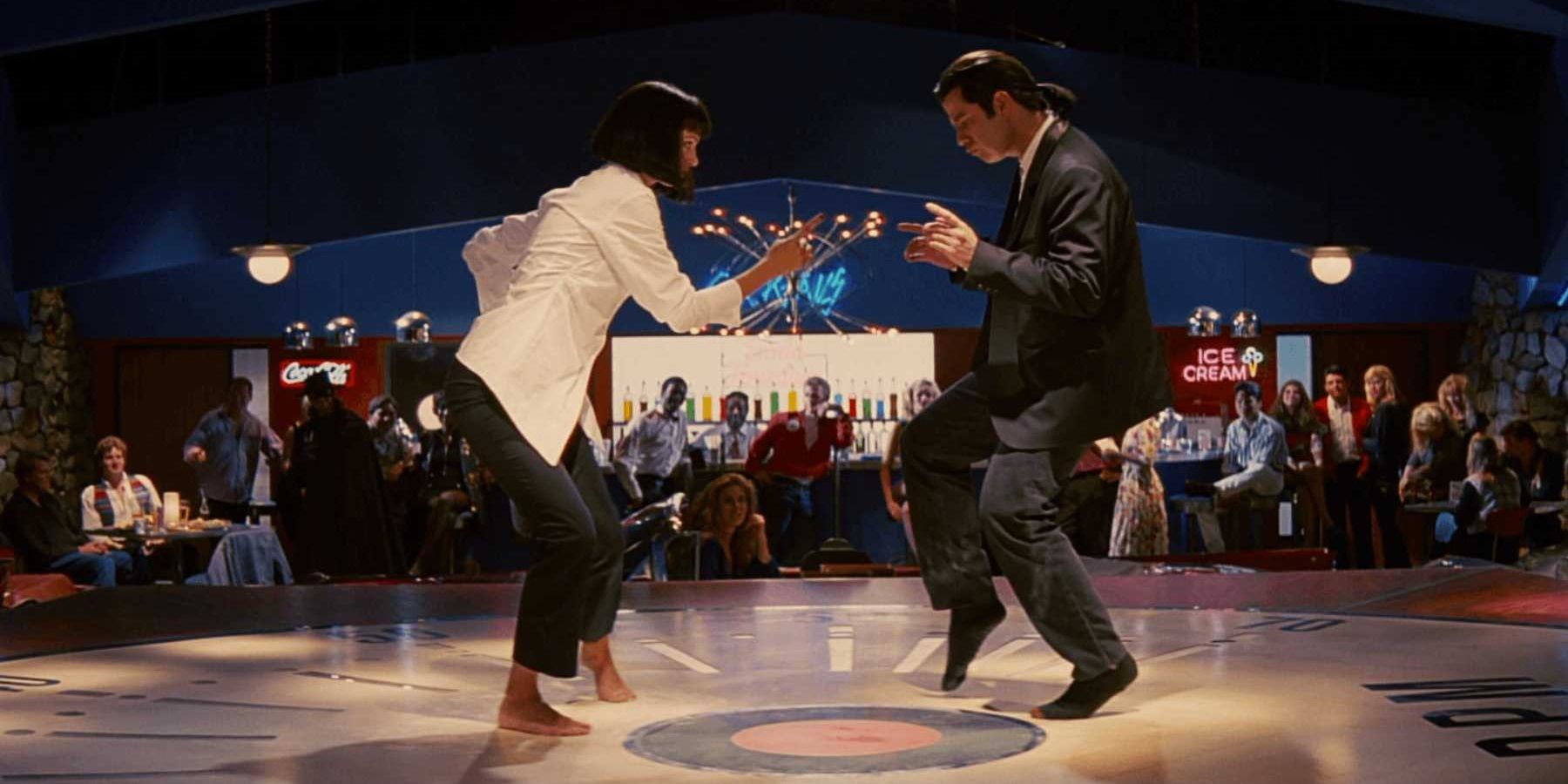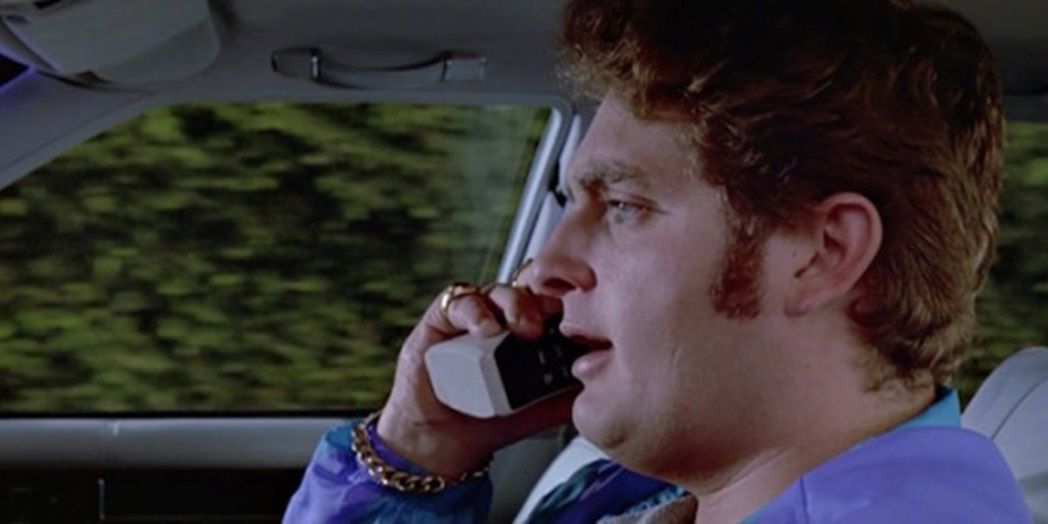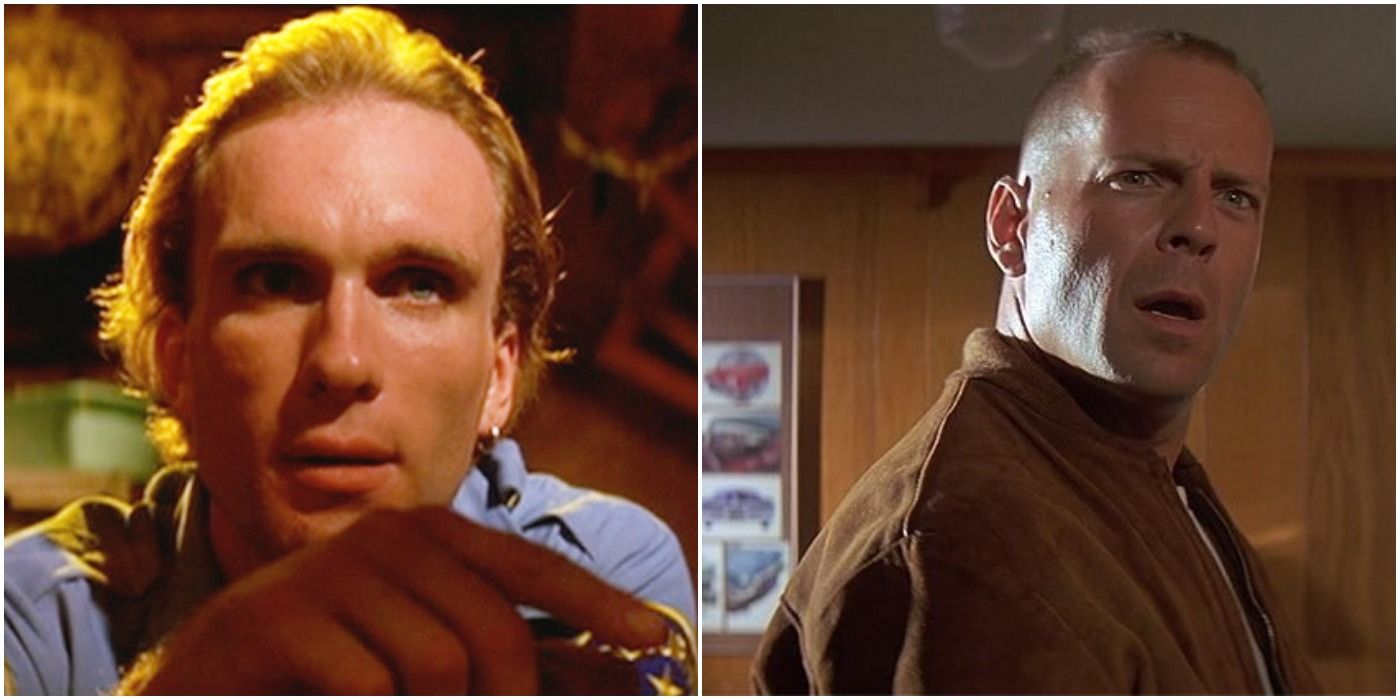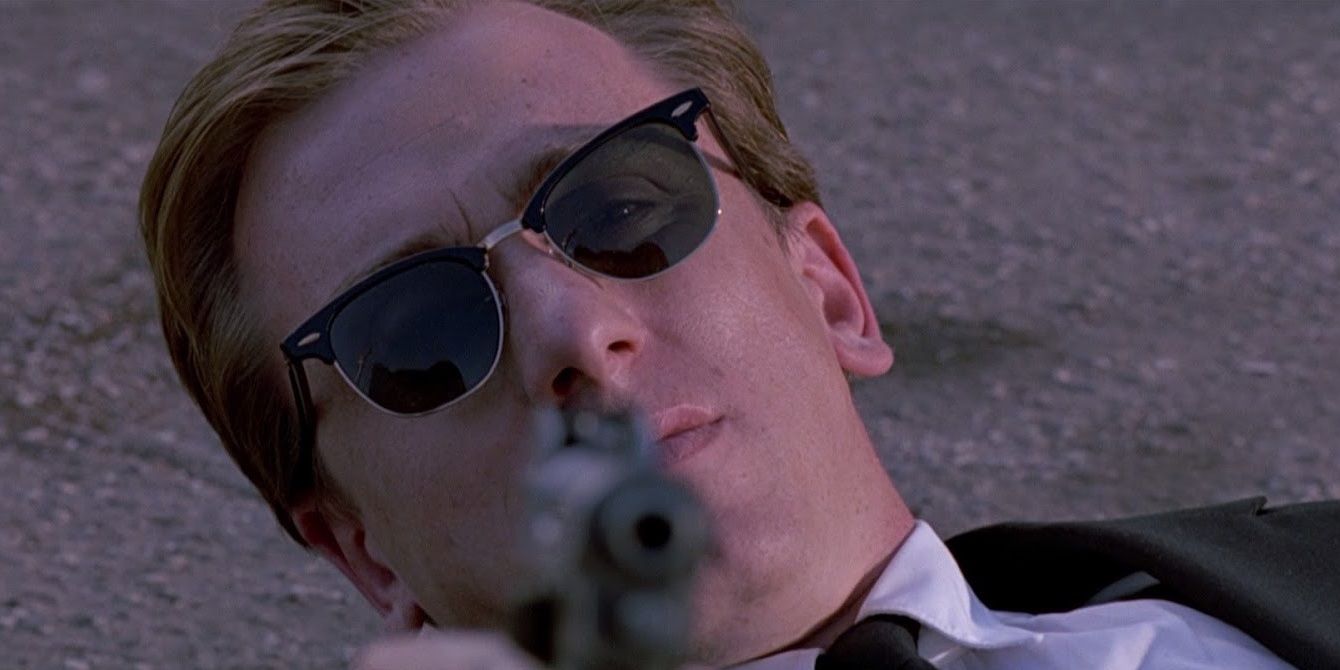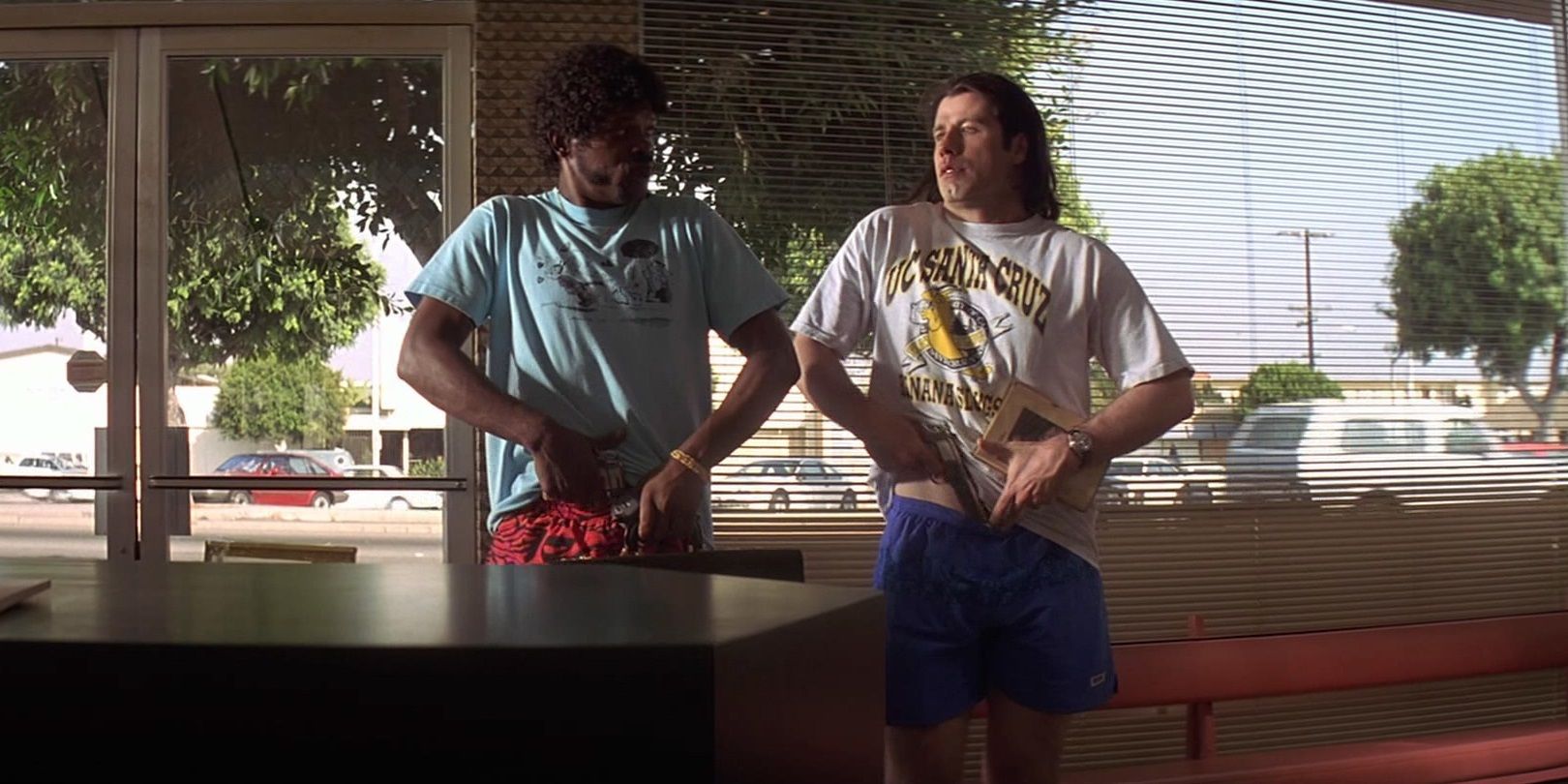Quentin Tarantino has always been renowned for his iconic soundtracks. No one can pull off a needle-drop moment like Tarantino, from the “Battle Without Honor or Humanity” hallway scene in Kill Bill to the “Cat People (Putting Out Fire)” warpaint scene in Inglourious Basterds.
Tarantino’s knack for pairing his scenes with the perfect music began in Reservoir Dogs, but he blew the whole music licensing budget on “Stuck in the Middle with You.” The director didn’t get a chance to really show off his record collection until he had a bigger budget for his sophomore feature, Pulp Fiction, whose soundtrack album is wildly popular.
Reservoir Dogs: “Little Green Bag” By The George Baker Selection
At the end of the unforgettable diner scene in Reservoir Dogs, the distinctive opening chords of The George Baker Selection’s “Little Green Bag” are heard before the movie cuts to the gangsters walking through the parking lot in slow-motion.
This is one of the most memorable opening credits sequences of all time. The actors’ names appear over closeups shots of their characters, then the movie’s title scrolls past a wide shot of the group.
Pulp Fiction: “Misirlou” By Dick Dale
Quentin Tarantino conceived Pulp Fiction to be a kind of rock ‘n’ roll spaghetti western and determined that surf rock is essentially a rock ‘n’ roll version of the spaghetti western music pioneered by composers like Ennio Morricone.
Dick Dale’s “Misirlou” starts to play when Pumpkin and Honey Bunny stick up a diner and the frame freezes. It plays over the first half of opening credits before a meta radio station change turns it to Kool & the Gang’s “Jungle Boogie.”
Reservoir Dogs: “Hooked On A Feeling” By Blue Swede
Before the off-screen heist in Reservoir Dogs, Blue Swede’s “Hooked on a Feeling” plays on the fictional K-Billy radio show Super Sounds of the Seventies.
The song was later used in Guardians of the Galaxy and Marvel’s marketing team put it at the forefront of all the movie’s trailers, so unfortunately Reservoir Dogs isn’t the movie this track is most closely associated with anymore.
Pulp Fiction: “Bullwinkle, Pt. II” By The Centurions
At the beginning of the “Vincent Vega and Marsellus Wallace’s Wife” storyline in Pulp Fiction, Vincent goes to his dealer Lance’s house to pick up some heroin.
As he shoots up against a stark black background ahead of driving over to Mia’s place, the Centurions’ “Bullwinkle, Pt. II” perfectly sets the tone for his high.
Reservoir Dogs: “Stuck In The Middle With You” By Stealers Wheel
This is not only the most memorable music moment in Reservoir Dogs; it’s arguably the most memorable music moment in Tarantino’s whole filmography, and one of the most memorable in the history of the movies. It prompted walkouts in early screenings of the film.
The lighthearted melody of Stealers Wheel’s “Stuck in the Middle with You” is juxtaposed brilliantly with the images of Mr. Blonde sadistically torturing a cop — especially since the music is diegetic and Mr. Blonde casually dances to it through the whole scene.
Pulp Fiction: “You Never Can Tell” By Chuck Berry
Chuck Berry’s rock ‘n’ roll classic “You Never Can Tell” offers the perfect backdrop for the Jack Rabbit Slim’s dance contest scene in Pulp Fiction.
Tarantino was inspired by everything from Jean-Luc Godard’s Bande à part to Disney’s The Aristocats in coming up with the spontaneous choreography for this scene.
Reservoir Dogs: “I Gotcha” By Joe Tex
Since Tarantino spent most of the music budget for Reservoir Dogs on securing “Stuck in the Middle with You” for the movie’s centerpiece, he had to scale back the spending for the rest of the soundtrack.
When Nice Guy Eddie is on the phone in a panic after the heist has gone horribly wrong and a cop is being tortured at the rendezvous point, Joe Tex’s “I Gotcha” plays.
Pulp Fiction: “Comanche” By The Revels
After escaping from the pawnshop basement, Butch is about to leave when he hears Marsellus being sexually assaulted by Zed and Maynard. He can’t leave him behind in good conscience, so he decides to go back to save him. He runs through a bunch of possible weapons before settling on a samurai sword.
The Revels’ “Comanche” exquisitely sets the stage for Butch’s revenge. This is the moment that Butch secures himself a happy ending. Now, he won’t have to look over his shoulder. Leaving with Fabienne on Zed’s chopper for a bright future is chronologically the movie’s final scene.
Reservoir Dogs: “Coconut” By Harry Nilsson
Harry Nilsson’s laidback novelty song “Coconut” plays over the end credits of Reservoir Dogs. The song’s whimsical melody eases the tension following the movie’s nail-biting final scene.
After the movie comes to a head with a standoff and Mr. White is horrified to discover his surrogate son Mr. Orange has betrayed him, Tarantino plays Nilsson’s track about a doctor prescribing a lime and coconut drink to a patient with a stomach ache.
Pulp Fiction: “Surf Rider” By The Lively Ones
The final scene of Pulp Fiction brings everything full circle as it reveals Jules and Vincent were present at the opening diner robbery. After a tense standoff with the robbers, the Lively Ones’ “Surf Rider” plays on the soundtrack.
The two hitmen scan the diner, see that the other customers are mad they got their own wallets back without thwarting the robbery, and Vincent says, “I think we should be leaving now.” Jules says, “Yeah, that’s probably a good idea.”

